FAQ
Who is able to see the content relevance at the top of each page?
Section titled “Who is able to see the content relevance at the top of each page?”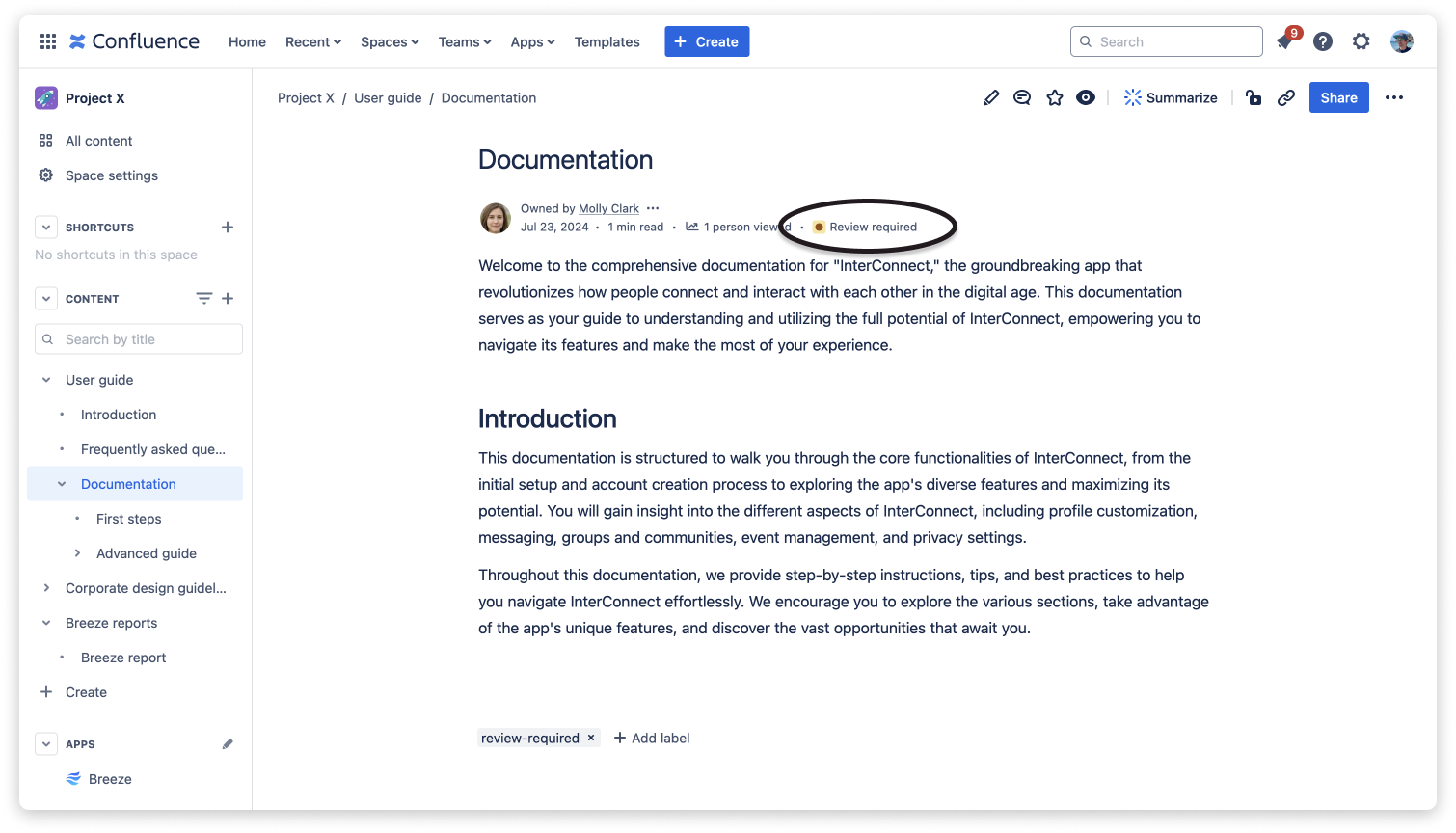
The content relevance on top of each page is shown to users with at least reading permission for the given page. However, it is not visible for guest or anonymous users.
Who is able to edit workflows or perform page archiving / deletion?
Section titled “Who is able to edit workflows or perform page archiving / deletion?”The assignment of workflows to spaces requires admin permissions. The editing of workflows requires admin permissions for all spaces the workflow is assigned to.
Deletion and archiving also require the user to have appropriate space permissions.
When does the content analysis run and at what interval?
Section titled “When does the content analysis run and at what interval?”By default and as a result of the initial setup process, Breeze is configured to execute review workflows and make a content analysis every four weeks. Admins of your Confluence site can change the analysis interval in the app settings by clicking the gear icon in the app menu bar. In the settings, you can select an analysis interval between one and four weeks as well as the day of execution.
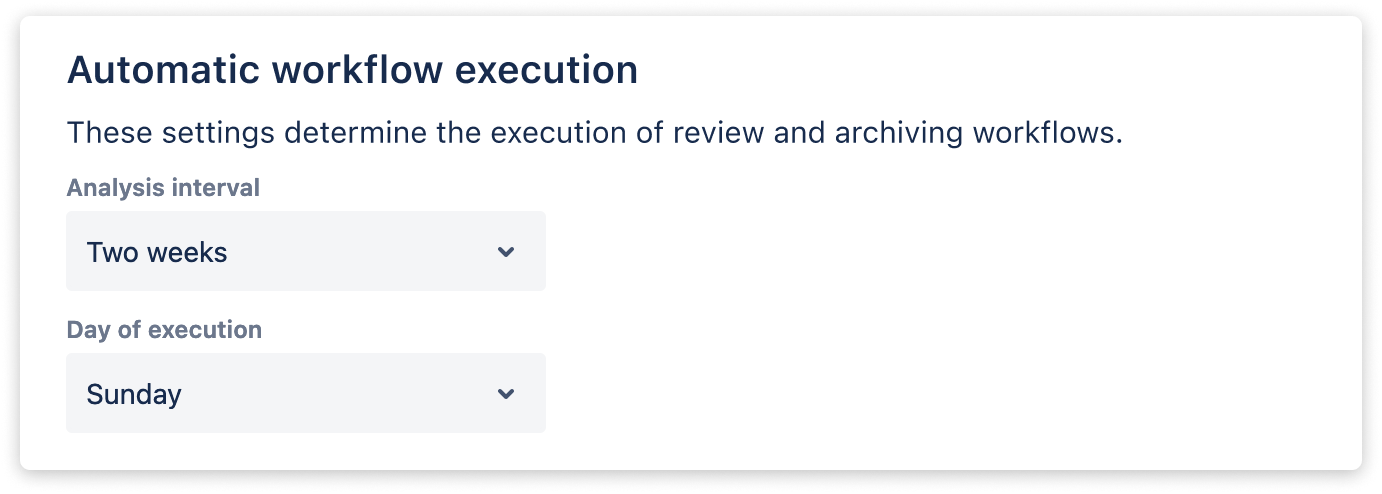
In the example above, Breeze will analyze all spaces with an associated workflow every two weeks on Sunday.
How are pages archived or deleted?
Section titled “How are pages archived or deleted?”All pages marked as ARCHIVABLE (either by Breeze resulting from executed review workflows or as a result of users manually marking a page for archiving) are listed in the Archiving component.
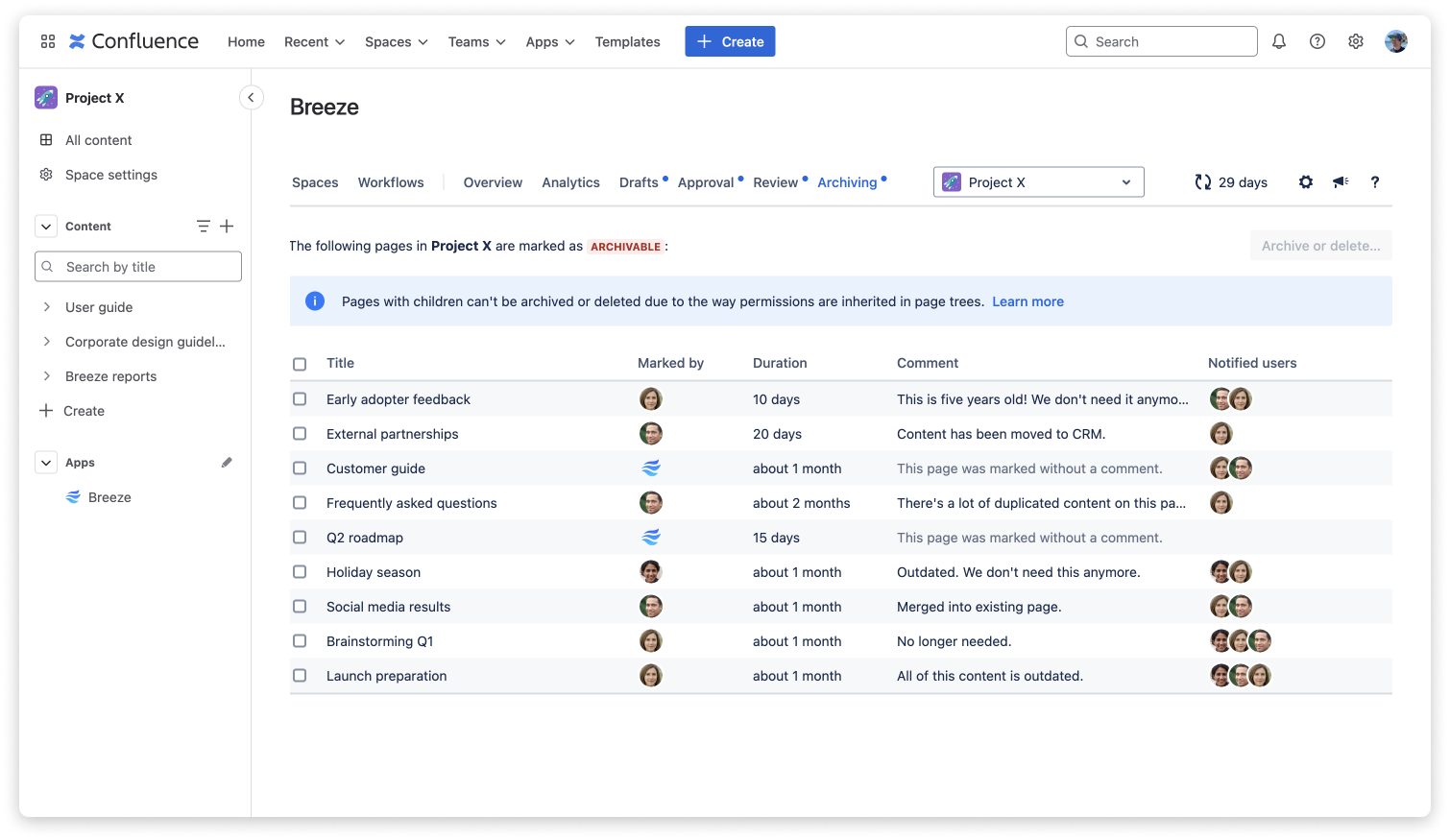
For archiving and deletion, Breeze uses the standard Confluence archive and trash. That way, you can rely on the Confluence features for retrieving and restoring your data.
How are content restrictions handled by Breeze?
Section titled “How are content restrictions handled by Breeze?”If Breeze notices that it cannot edit a page, it will show the following status, which is probably caused by content restrictions.

Clicking the status will also show the following message explaining that Breeze is not able to apply the automated review workflow to a restricted page since the automated labeling of a page as REVIEW REQUIRED or ARCHIVABLE requires the Breeze user to have editing permissions.
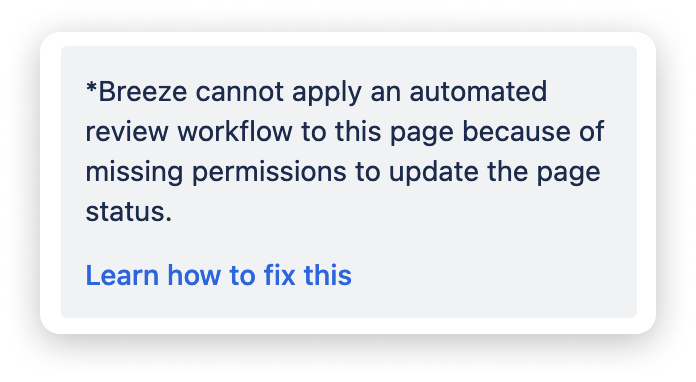
To fix this, open the content restrictions by clicking the Share button.

Confluence provides the following two options:
- Open - anyone in this space can view or edit (default, no restrictions)
- Restricted - only specific people can view or edit
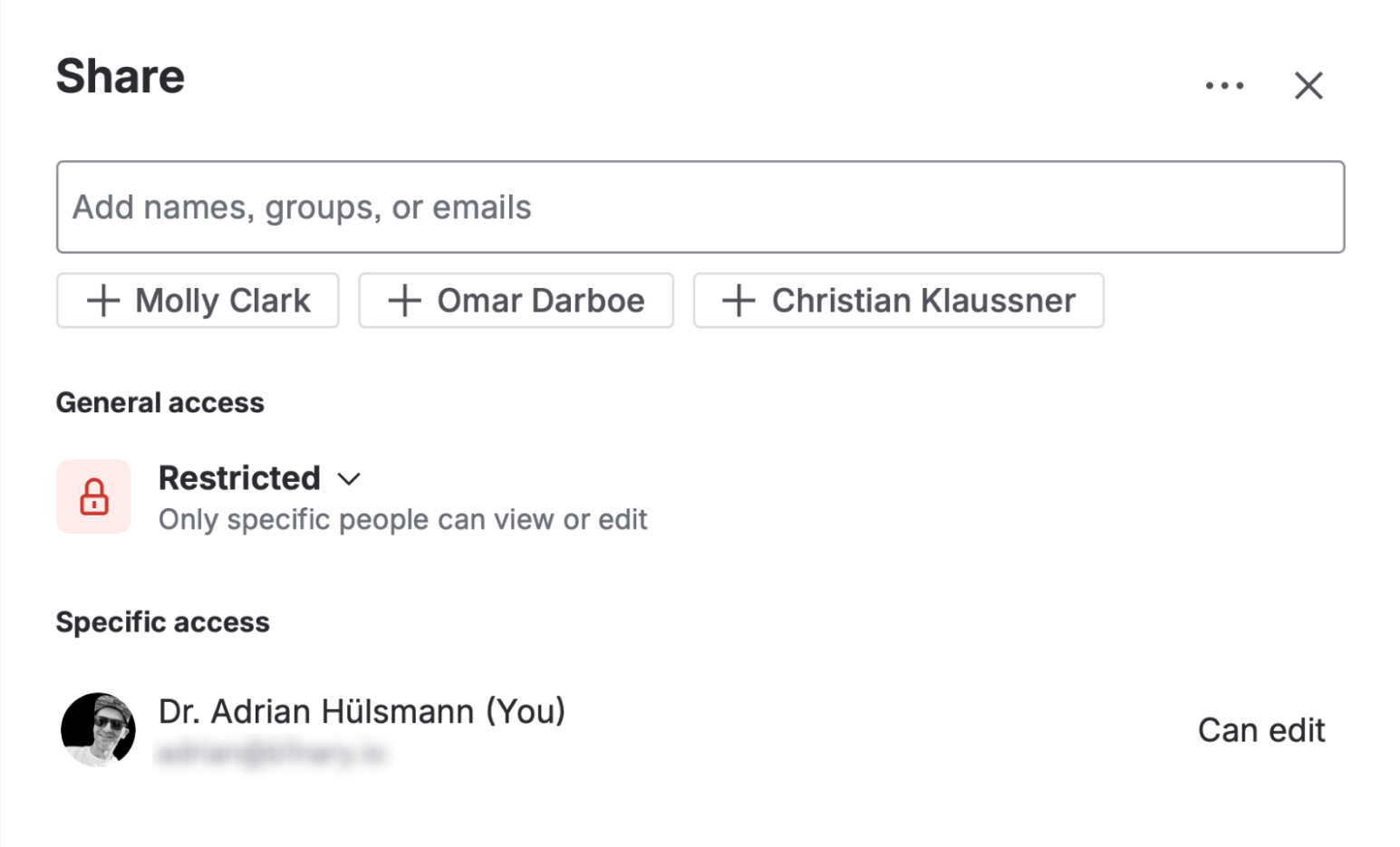
If a page has content restrictions, please make sure to search for Breeze and give it editing permissions. Then add Breeze to the user list by clicking Save.
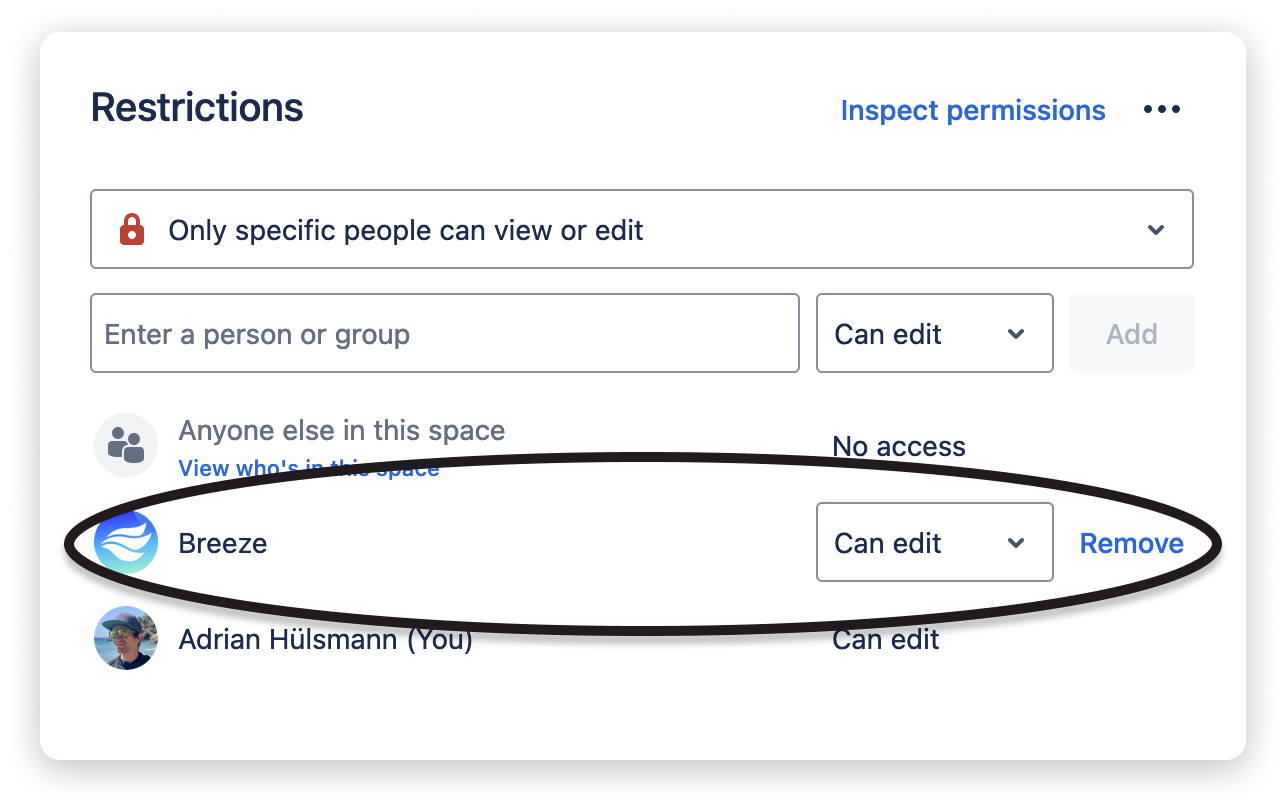
As a result, after saving the updated content restrictions and refreshing the page, Breeze will show the default UP TO DATE status, which means it now has editing permissions for the restricted page and hence will be able to label the page as REVIEW REQUIRED or ARCHIVABLE when executing the review workflow.

How are users notified?
Section titled “How are users notified?”After each workflow execution, Breeze creates an analysis report for each space with an associated workflow. In this report, Breeze utilizes Confluence’s built-in feature of user mentions, e.g. @Adrian Hülsmann that will trigger notifications via email.
In addition, users receive notifications via the bell icon at the top right of Confluence.
This design using @mentions provides exceptional data privacy because notifications are sent via your Confluence Cloud site and not via external servers. As a result, Breeze does not process any PII-related data, such as user names or email addresses to send notifications.